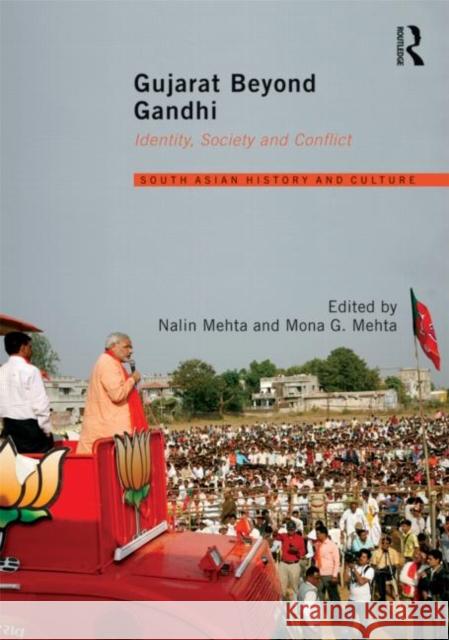Gujarat Beyond Gandhi : Identity, Society and Conflict » książka
Gujarat Beyond Gandhi : Identity, Society and Conflict
ISBN-13: 9780415556125 / Angielski / Twarda / 2011 / 176 str.
Gujarat Beyond Gandhi : Identity, Society and Conflict
ISBN-13: 9780415556125 / Angielski / Twarda / 2011 / 176 str.
(netto: 676,35 VAT: 5%)
Najniższa cena z 30 dni: 654,86
ok. 16-18 dni roboczych.
Darmowa dostawa!
This interdisciplinary exploration provides much needed insights into the relationships between the dominant impulses of identity formation, cultural change, political mobilisation, religious movements and subaltern modes of communication that define modern Gujarat.
This book was published as a special issue of South Asian History and Culture.
The birthplace of Mahatma Gandhi and of Mohammad Ali Jinnah, the founder of Pakistan, the Indian state of Gujarat has been at the centre-stage of South Asia’s political iconography for more than a century. As Gujarat, created as an independent linguistic state in the Indian Union in 1960, completes fifty years of its existence, this book critically explores the many paradoxes and complexities of modernity and politics in this state. This ground breaking interdisciplinary exploration provides much needed insights into the relationships between the dominant impulses of identity formation, cultural change, political mobilisation, religious movements and subaltern modes of communication that define modern Gujarat. It touches upon a fascinating range of topics – vegetarianism and violence, the practice of corruption and public power, mass media and the visual spectacle of violence, global diasporas and provincial politics, folk legends and identity – providing new insights into understanding the enigma of Gujarat. Going well beyond the boundaries of Gujarat and engaging with larger questions about democracy and diversity in India, this text will be essential reading for students and scholars interested in South Asian Studies and for those interested in gaining a better understanding of identity politics, globalisation and modernity in the developing world.
This book was published as a special issue of South Asian History and Culture.











